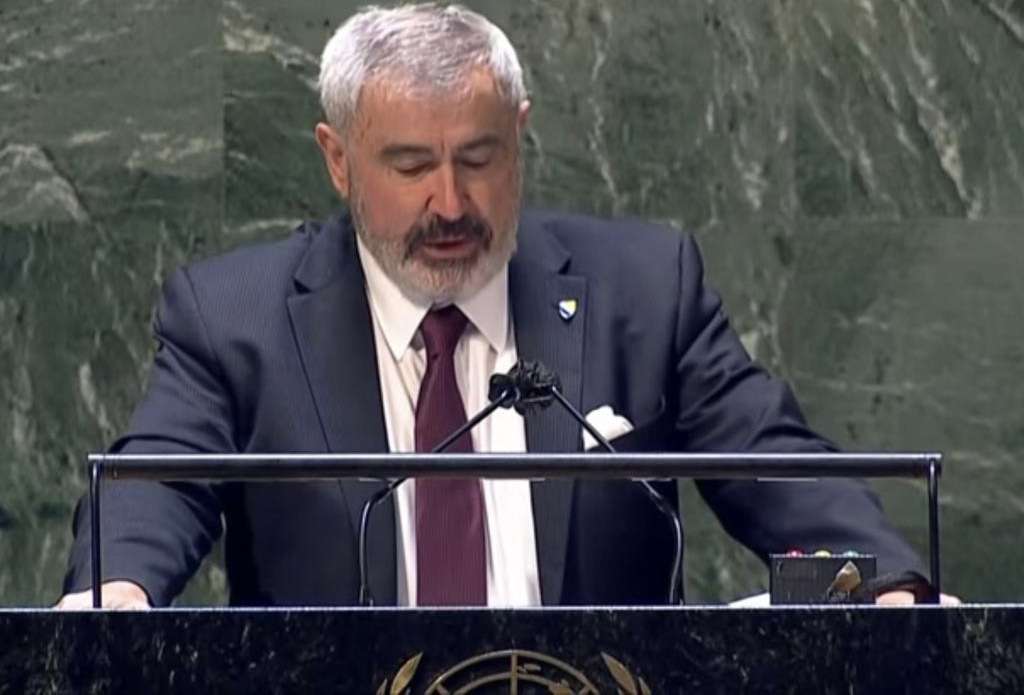Ambassador of Bosnia and Herzegovina to the UN Sven Alkalaj announced that the UN Security Council, after Russia's aggression against Ukraine, which began almost 60 days ago, faces a big problem - how to condemn the aggression of a UN member against another UN member.
In an article for the Institute for Geopolitics, Economics and Security (IGES), Alkalaj said that the situation is even more complex because the aggressor country is also a permanent member of the UN Security Council with a veto right and as a result of such circumstances it was not possible to reach an agreement in the UN Security Council to condemn the aggression - precisely because the veto was used.
- In order for all UN member states to be aware of this situation, the issue of aggression against Ukraine had to be put on the agenda of the UN General Assembly. An identical procedure was made when the member states were asked to suspend the Russian Federation from the UN Human Rights Council. Therefore, an extraordinary session of the General Assembly had to be scheduled in order to discuss Russia's aggression against Ukraine in front of all members, and not only in front of 15 members of the UN Security Council. With such an approach, conditions have been created for all countries to express their position on aggression - Alkalaj explained.
- So, in order for a session of the General Assembly to be held, it is necessary to put these things on the agenda so that the entire membership can discuss them. The UN Charter makes this possible through these two articles. In the case of the current situation, when one country, a permanent member of the SC, opposes the decision of the SC, ie. vetoes it, the debate is transferred to the General Assembly, but an extraordinary session of the General Assembly must be requested.
In order to avoid the procedure of requesting an extraordinary session of the General Assembly, the idea came to pass a resolution called "Veto Initiative", which has a purely political meaning. The resolution would state that every time a country vetoes a certain decision, it would automatically go to the session of the General Assembly to discuss the submitted veto in the SC," Alkalaj pointed out.
According to him, that would happen automatically and would not depend on who is the president of the General Assembly, who otherwise has the opportunity to decide whether he wants to and when to put an item on the agenda. Thus, after the automatic session of the General Assembly and the declaration, certain conclusions would be drawn.
He added that many other elements are in favor of the initiative, one of which is strengthening multilateralism.
On the other hand, Alkalaj reminds that there are numerous examples when the Security Council was not able to take effective action due to large political differences among the permanent members. Another important reason is that the majority membership of the UN believes that the UN must be reformed because there is a need for a different way of conducting activities.
- This "Veto INitiative" is not against anyone but calls for greater responsibility for the care of humanity. It is clearly stated in the UN Charter that the Security Council works on behalf of all UN members, and when certain members use the veto, other member states have the right to know why. The support for the adoption of such a resolution is growing every day. So far, about 60 countries have co-sponsored the resolution, while a number of countries have decided to support it, but not to co-sponsor it. Some permanent members, such as the United States, Great Britain and France, will give their support - Alkalaj said.
The date for the discussion and decision-making on this resolution is scheduled for Tuesday, April 26, 2022.
